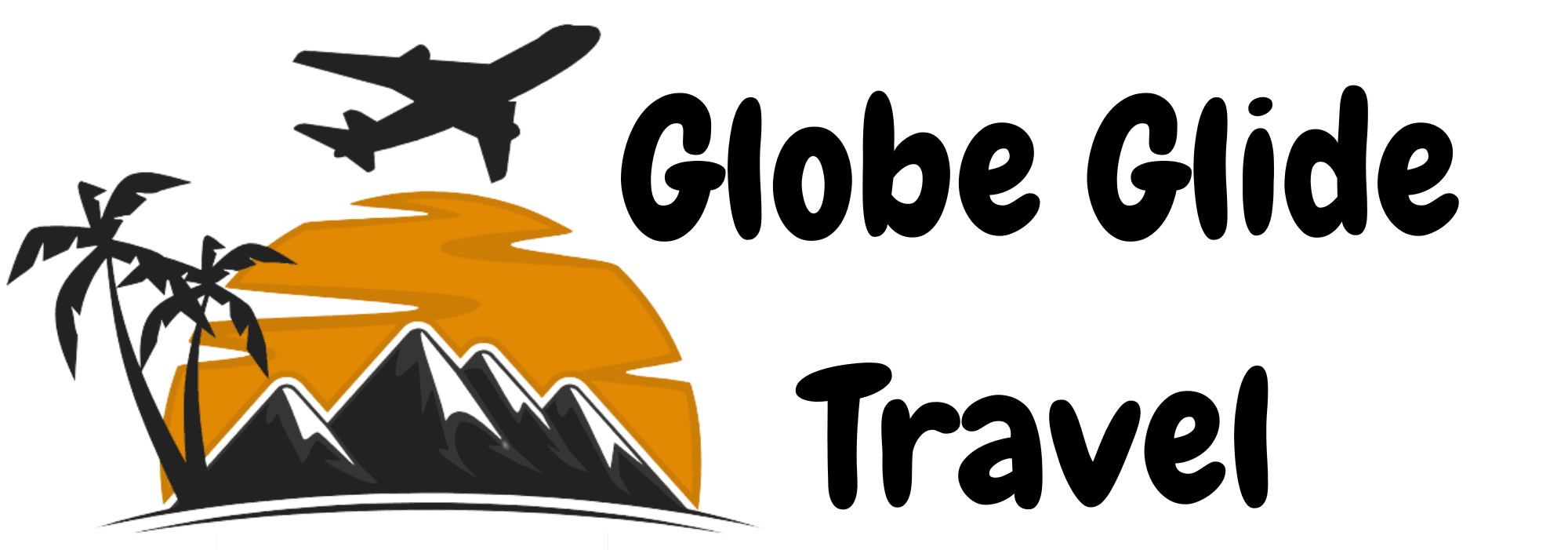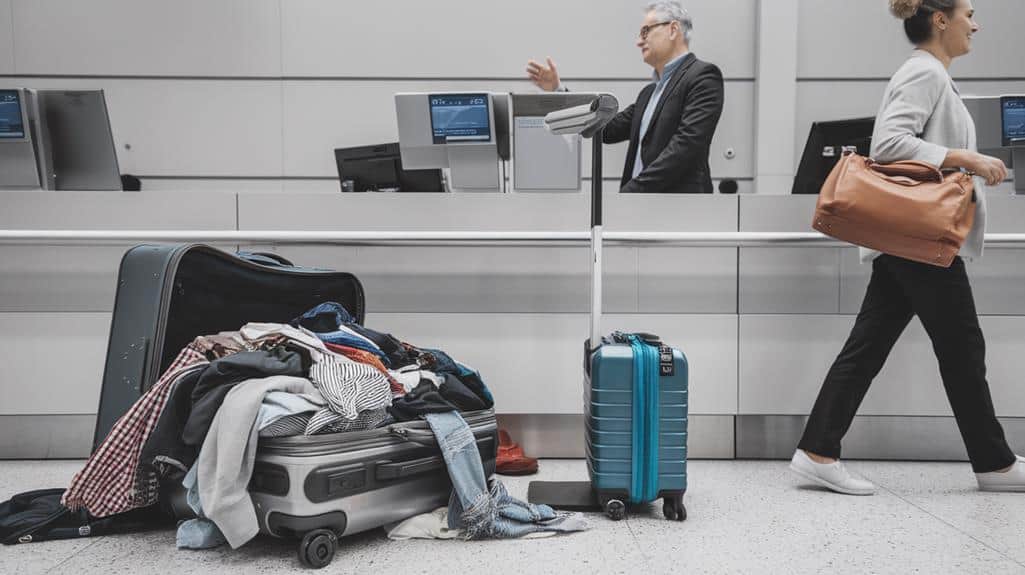
10 Airline Fees You Can Dodge While Traveling
You can sidestep numerous airline fees by employing strategic tactics. Pack efficiently to avoid baggage charges, wait until check-in for free seat assignments, and bring your own snacks to circumvent in-flight meal costs. Book flexible fares to dodge change penalties, and weigh luggage at home to prevent overweight surcharges. Download entertainment before boarding to skip Wi-Fi fees, and pack your own travel pillow and blanket. Book online to avoid phone reservation charges, and use a credit card without foreign transaction fees for international travel. By implementing these strategies, you'll dramatically reduce travel expenses and maximize your budget. Discover additional money-saving techniques to further enhance your travel experience.
In a Nutshell
- Pack light and wear heavy items to avoid baggage fees and overweight charges.
- Wait until check-in to select seats for free or book together for automatic assignment.
- Bring your own snacks, meals, and empty water bottle to bypass in-flight food costs.
- Book flexible fares or consider travel insurance to mitigate change and cancellation penalties.
- Download entertainment before flying and pack your own comfort items to avoid Wi-Fi and amenity fees.
Baggage Fees
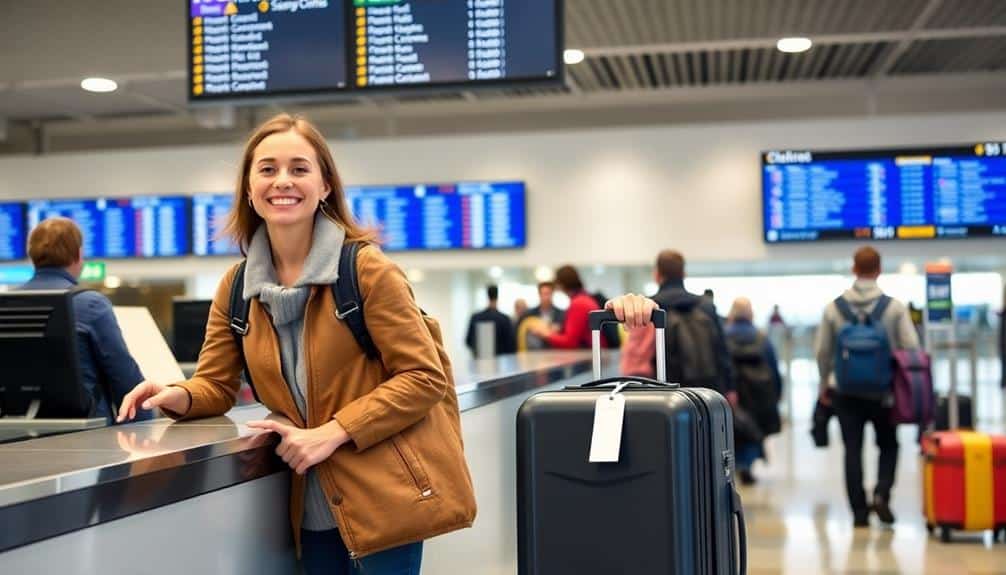
How much are you willing to pay for your luggage? Airlines have made baggage fees a significant revenue source, but savvy travelers can avoid these costs. To dodge these fees, pack light and utilize a carry-on bag that meets airline size restrictions, typically 22 x 14 x 9 inches. If you must check a bag, consider loyalty programs or airline-branded credit cards that offer free checked baggage. Some airlines still allow one free checked bag on international flights, so research your carrier's policies. Weigh your luggage at home to avoid overweight charges, and consider wearing your heaviest items during travel. Using travel laundry bags can help you pack more efficiently and stay organized, potentially reducing the need for checked baggage. These bags often feature odor containment and versatile storage options, making them ideal for extended trips. When booking, compare total costs including baggage fees across airlines, as a slightly higher ticket price might include free luggage. Ultimately, look for airlines that still offer free checked bags, such as Southwest, to maximize your savings.
Seat Selection Charges
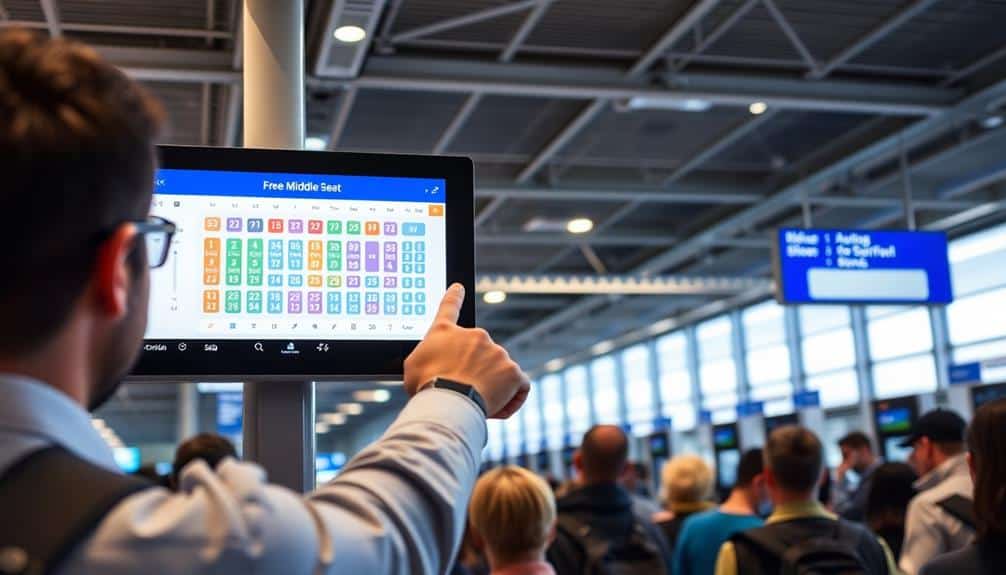
Airlines often tack on extra fees for seat selection, but you don't always have to pay them. To avoid these charges, consider waiting until check-in to select your seat, as many airlines offer free seat assignments at this time. If you're traveling with companions, book your tickets together to increase the likelihood of being seated near each other without additional fees. Some airlines also provide free seat selection for loyalty program members or credit card holders, so check your benefits before paying. When checking in, make sure your luggage is secure to avoid any potential issues with airline staff or security personnel.
For long-haul flights where comfort is essential, weigh the cost of seat selection against potential discomfort. Exit row seats, which offer extra legroom, may be worth the fee for taller passengers. If you're flexible, consider choosing a less popular flight time, as these often have more free seat options available. Remember, airlines typically can't separate families with young children, so you may receive free seat assignments if traveling with kids under a certain age.
In-Flight Meal Costs
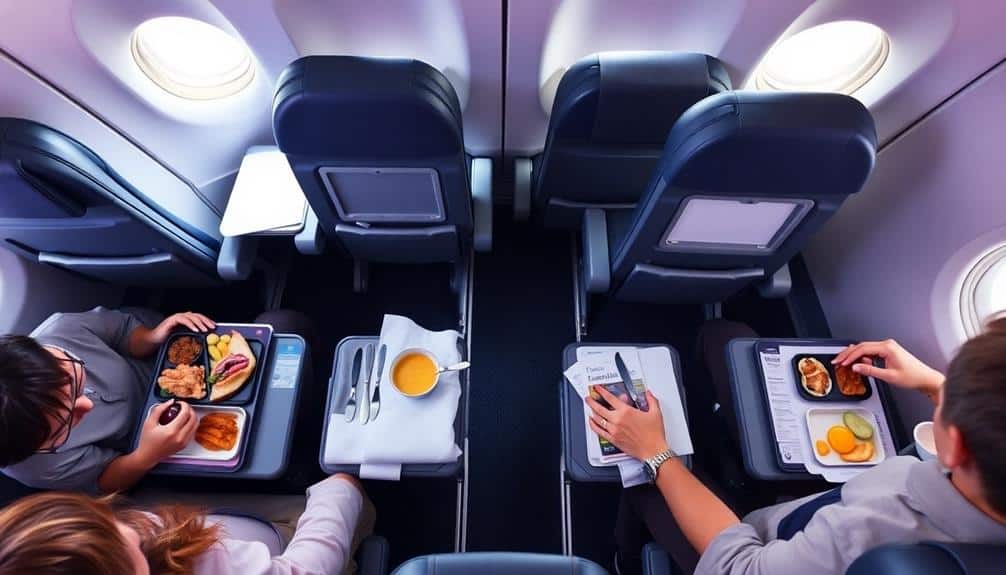
From within the cabin, you'll often find that in-flight meals come with a hefty price tag. To avoid these costs, consider packing your own snacks and meals before boarding. Most airlines allow you to bring food through security and onto the plane, provided it complies with TSA regulations. Opt for non-liquid items like sandwiches, granola bars, or fruit to guarantee smooth passage through checkpoints. Staying hydrated during your flight is indispensable, so bring a sustainable water bottle that you can refill after passing through security. If you're on a longer flight, research the airline's meal policy in advance; some carriers offer complimentary meals on certain routes or to specific fare classes. When booking, look for tickets that include meal service to potentially save money overall. Remember to stay hydrated during your flight by bringing an empty water bottle to fill after security or requesting free water from flight attendants once onboard.
Change and Cancellation Penalties
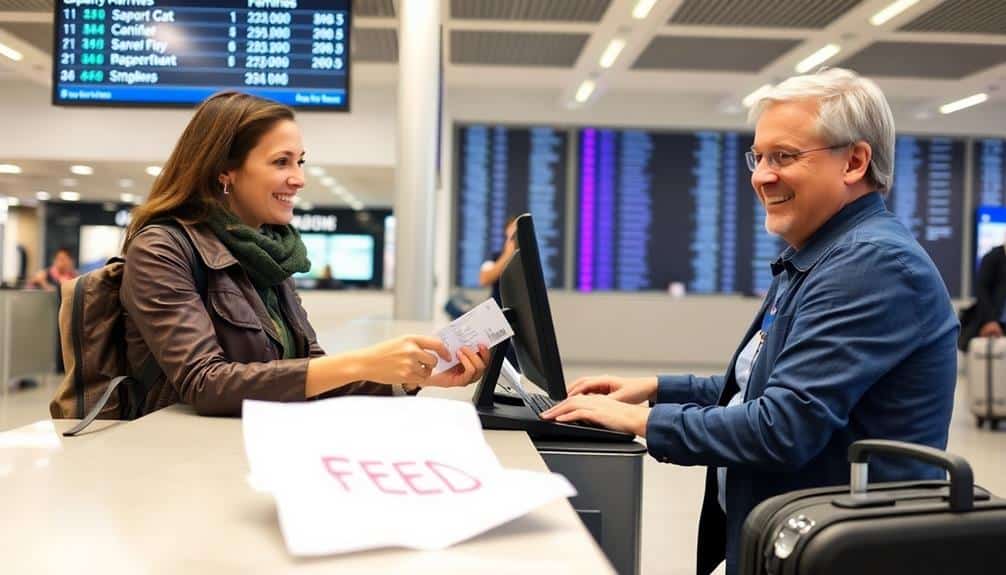
While planning ahead can help you avoid in-flight meal costs, it's equally important to ponder potential change and cancellation penalties. These fees can range from $50 to $200 or more, depending on the airline and ticket type. To mitigate these expenses, consider booking flexible fares, which often allow free changes or cancellations. Alternatively, some airlines offer a 24-hour cancellation policy, giving you a brief window to reconsider your plans without penalty. If you're uncertain about your travel dates, look into travel insurance that covers cancellations. For unavoidable changes, act quickly; many airlines charge lower fees for modifications made well in advance. Additionally, some credit cards offer trip cancellation protection as a perk, potentially saving you hundreds of dollars. Always read the fine print and familiarize yourself with your airline's specific policies to avoid unexpected charges.
Overweight Luggage Surcharges
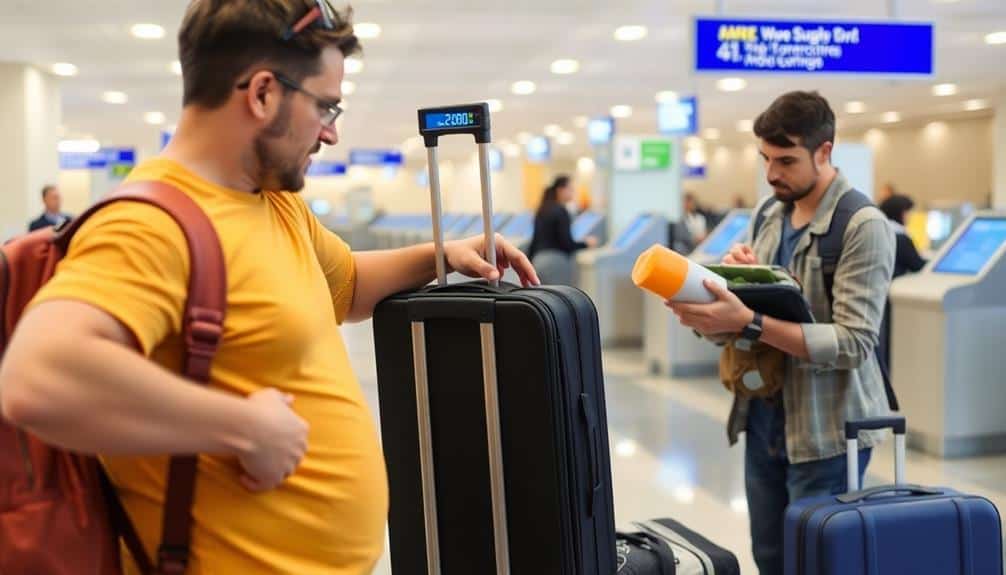
Before you even reach the check-in counter, you should be mindful of your luggage weight. Airlines impose hefty fees for overweight bags, often charging $50 to $200 per overweight piece. To avoid these charges, invest in a portable luggage scale, accurate to within 0.1 pounds, for pre-flight weighing. Pack strategically by wearing your heaviest items and utilizing your personal item allowance for denser objects. If you're close to the limit, consider redistributing weight among your travel companions' bags or removing non-essential items. Some airlines offer baggage pre-check services, allowing you to address weight issues before reaching the counter. As a last resort, shipping excess items to your destination may prove more cost-effective than paying overweight fees. Remember, weight limits vary by airline and fare class, so always check your specific allowance before packing.
Priority Boarding Fees
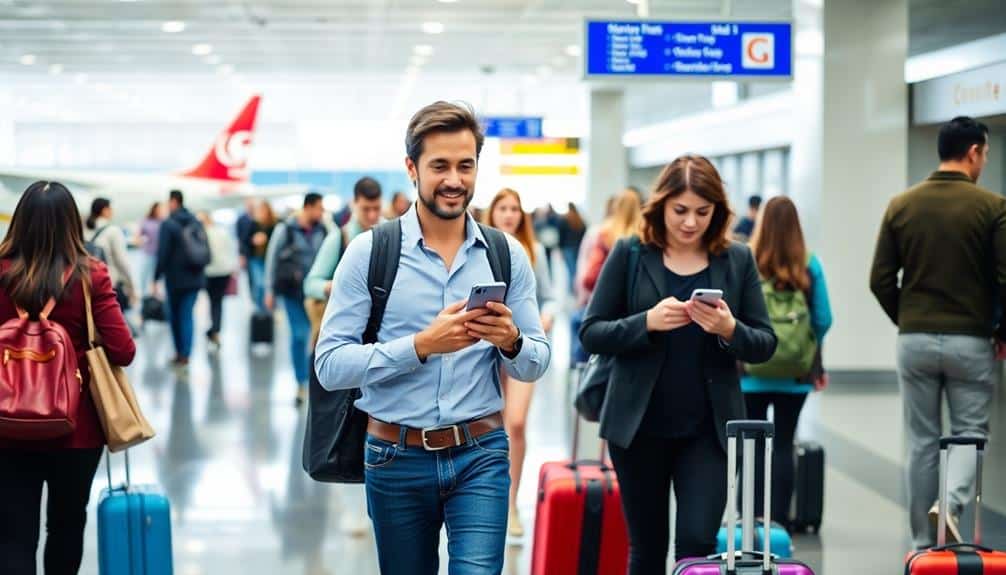
Touted as a time-saving convenience, priority boarding often comes with a hefty price tag. You'll find that many airlines charge $10 to $75 for this privilege, which allows you to board before general passengers. However, you can often bypass this fee by employing alternative strategies. Consider applying for the airline's co-branded credit card, which frequently includes priority boarding as a perk. Elite status in the airline's frequent flyer program typically grants this benefit as well. If you're traveling with young children or have a disability, you're usually entitled to early boarding at no extra cost. Additionally, selecting a seat at the back of the plane can sometimes result in earlier boarding, as many airlines board from rear to front. By utilizing these methods, you can save money while still enjoying the benefits of boarding early.
Wi-Fi and Entertainment Expenses

In-flight entertainment and Wi-Fi can quickly inflate your travel expenses. To avoid these costs, consider downloading content onto your devices before boarding. Many airlines now offer free in-flight entertainment through their mobile apps, which you can access using your own device. If you must connect to Wi-Fi, purchase a plan before your flight, as it's often cheaper than buying onboard.
To save on entertainment and connectivity costs:
- Download movies, TV shows, and podcasts to your device before flying
- Bring a book or e-reader for offline entertainment
- Use airline apps for free in-flight entertainment options
- Purchase Wi-Fi plans in advance for discounted rates
Pillow and Blanket Charges
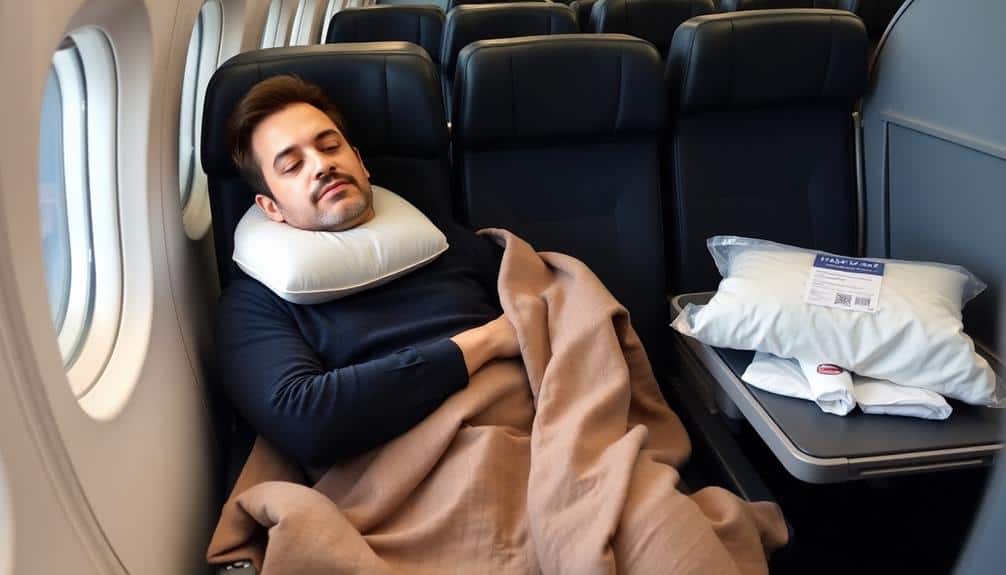
While entertainment and connectivity are important for many travelers, comfort is equally essential during long flights. Some airlines have begun charging for pillows and blankets, once considered standard amenities. To avoid these fees, you can bring your own travel pillow and lightweight blanket or large scarf. Inflatable neck pillows are particularly convenient, as they take up minimal space when deflated. Look for options made with memory foam or microbead filling for maximum comfort. When selecting a travel blanket, consider materials like fleece or merino wool, which provide warmth without bulk. Many travel blankets come with carrying cases or can be compressed into small pouches. By packing these items, you'll not only save money but also have clean, familiar comfort items throughout your journey. Remember to check your airline's specific policies regarding personal comfort items before traveling.
Phone Booking Fees
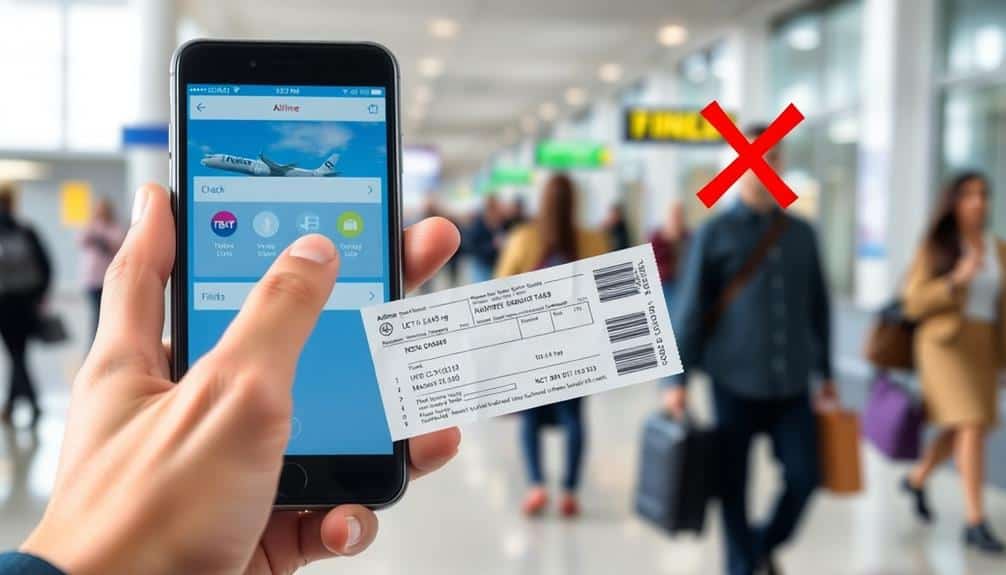
Many airlines charge extra fees for booking flights over the phone, encouraging customers to use their websites or mobile apps instead. To avoid these fees, consider the following strategies:
- Book online using the airline's official website or mobile app
- Utilize third-party travel booking sites for comparison and potential savings
- Join the airline's loyalty program for exclusive online booking discounts
- Look for promotional codes that waive phone booking fees
If you must book by phone, inquire about fee waivers for complex itineraries or special circumstances. Some airlines may exempt certain passengers, such as those with disabilities or seniors, from phone booking fees. Additionally, if you encounter technical issues with the airline's website, document the problem and request a fee waiver when calling. By being proactive and informed, you can often circumvent these extra charges and secure your preferred flights without incurring unnecessary costs.
Currency Conversion Costs
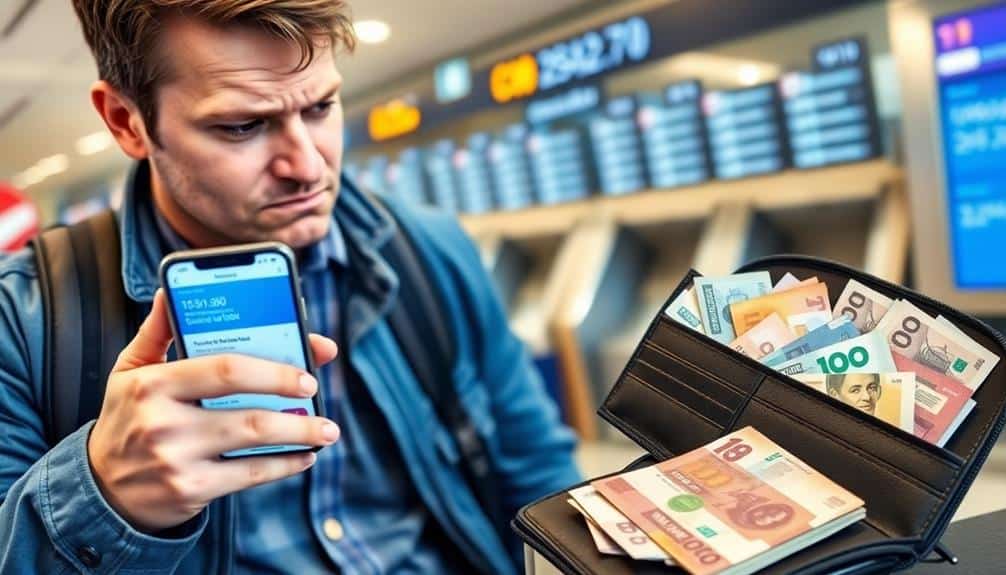
Currency conversion fees can quickly add up when you're traveling internationally. These costs often come from using your credit card abroad or exchanging money at airport kiosks. To avoid these fees, consider obtaining a credit card that doesn't charge foreign transaction fees. Many travel-focused cards offer this benefit, allowing you to make purchases in foreign currencies without incurring extra charges. Additionally, you can withdraw local currency from ATMs using a debit card that reimburses international ATM fees. Before your trip, research the best exchange rates and consider exchanging some money at your local bank. When abroad, opt for purchases in the local currency rather than your home currency to bypass dynamic currency conversion fees. By planning ahead and choosing the right financial products, you'll save considerably on currency conversion costs throughout your international travels.
Frequently Asked Questions
Are Airline Loyalty Programs Worth Joining to Avoid Fees?
Like a golden key opening concealed riches, airline loyalty programs can indeed be worth joining to avoid fees. You'll often find that these programs offer perks such as waived baggage fees, priority boarding, and even complimentary upgrades. However, the value you'll extract depends on your travel frequency and preferred airlines. To maximize benefits, it's imperative to strategically choose programs aligned with your travel patterns, accumulate points consistently, and understand the program's redemption policies. Always read the fine print to avoid surprises.
How Can I Dispute Unfair Airline Charges on My Credit Card?
To dispute unfair airline charges on your credit card, you should first contact the airline directly to resolve the issue. If unsuccessful, file a formal dispute with your credit card company, providing detailed documentation of the charges and your attempts to resolve them. Most card issuers have specific timeframes for disputes, typically 60-120 days from the transaction date. Be prepared to explain why the charges are unfair and provide any supporting evidence, such as receipts or correspondence with the airline.
Do Airlines Offer Fee Waivers for Military Personnel or Frequent Flyers?
As a frequent flyer, you're not just soaring through the skies—you're traversing a sea of fees. Airlines often offer fee waivers for military personnel and loyal customers. Active-duty service members typically enjoy waived baggage fees and, sometimes, ticket change fees. For frequent flyers, status tiers can grant perks like priority boarding, free seat selection, and baggage fee waivers. You'll find that most major carriers have specific military and loyalty programs, each with its own set of benefits and eligibility requirements.
Are There Seasonal Variations in Airline Fees Throughout the Year?
You'll find that airline fees do indeed fluctuate seasonally. During peak travel periods, such as summer and major holidays, you're likely to encounter higher fees for services like seat selection, baggage, and flight changes. Conversely, off-peak seasons often bring lower fees and more flexibility. It's worth noting that some airlines offer promotional periods with reduced or waived fees, typically during slower travel times. To maximize savings, consider planning your trips during these off-peak seasons and staying alert for special offers.
Can Travel Insurance Cover Unexpected Airline Fees During My Trip?
Picture yourself, a hapless traveler, drowning in a sea of unexpected airline fees. Now, let's immerse ourselves in reality. Travel insurance can indeed cover some unexpected airline fees during your trip, depending on the policy you've chosen. You'll find that many all-encompassing plans offer protection against fees related to trip delays, cancellations, or interruptions. However, it's imperative that you thoroughly review your policy's terms and conditions, as coverage can differ considerably between providers and specific plans.
